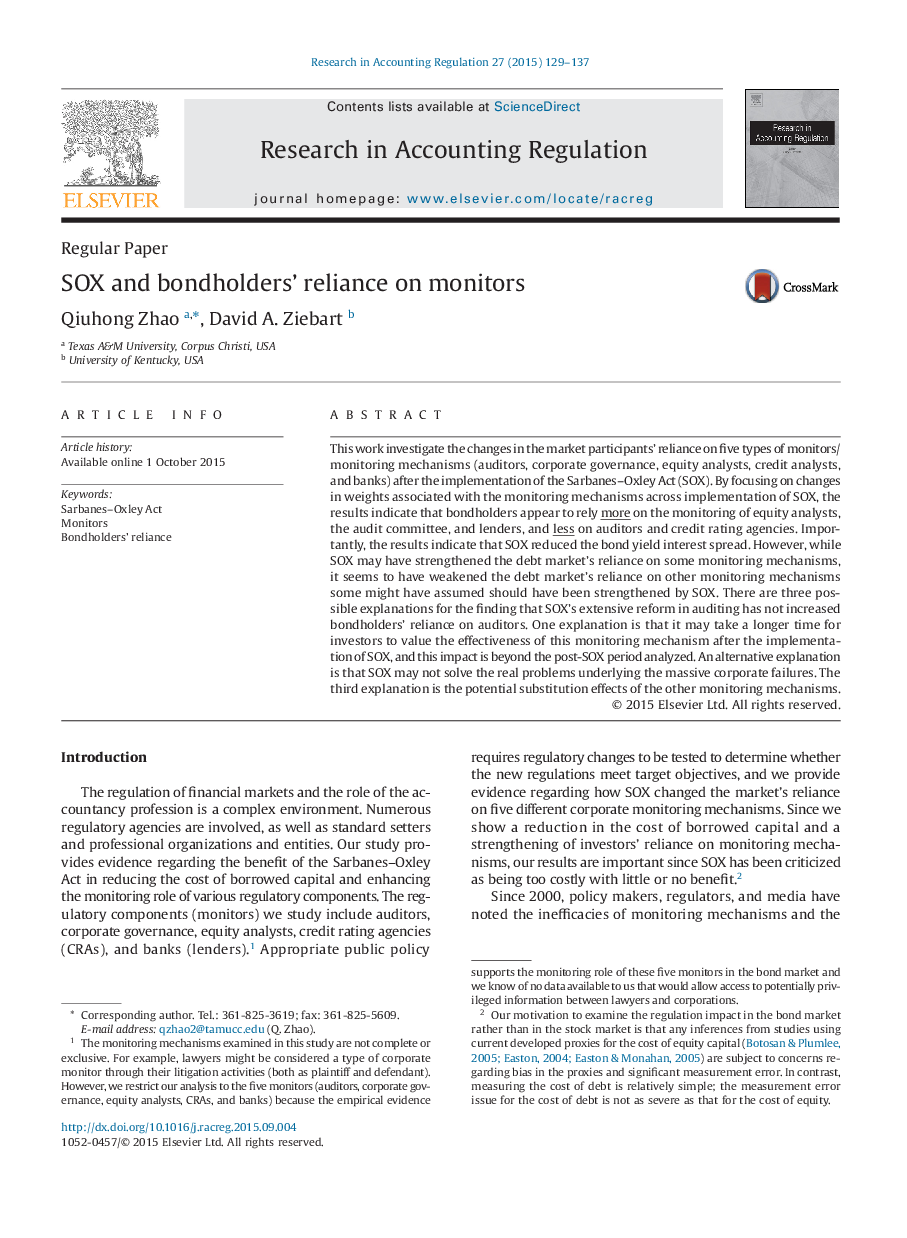| Article ID | Journal | Published Year | Pages | File Type |
|---|---|---|---|---|
| 1006581 | Research in Accounting Regulation | 2015 | 9 Pages |
This work investigate the changes in the market participants' reliance on five types of monitors/monitoring mechanisms (auditors, corporate governance, equity analysts, credit analysts, and banks) after the implementation of the Sarbanes–Oxley Act (SOX). By focusing on changes in weights associated with the monitoring mechanisms across implementation of SOX, the results indicate that bondholders appear to rely more on the monitoring of equity analysts, the audit committee, and lenders, and less on auditors and credit rating agencies. Importantly, the results indicate that SOX reduced the bond yield interest spread. However, while SOX may have strengthened the debt market's reliance on some monitoring mechanisms, it seems to have weakened the debt market's reliance on other monitoring mechanisms some might have assumed should have been strengthened by SOX. There are three possible explanations for the finding that SOX's extensive reform in auditing has not increased bondholders' reliance on auditors. One explanation is that it may take a longer time for investors to value the effectiveness of this monitoring mechanism after the implementation of SOX, and this impact is beyond the post-SOX period analyzed. An alternative explanation is that SOX may not solve the real problems underlying the massive corporate failures. The third explanation is the potential substitution effects of the other monitoring mechanisms.
